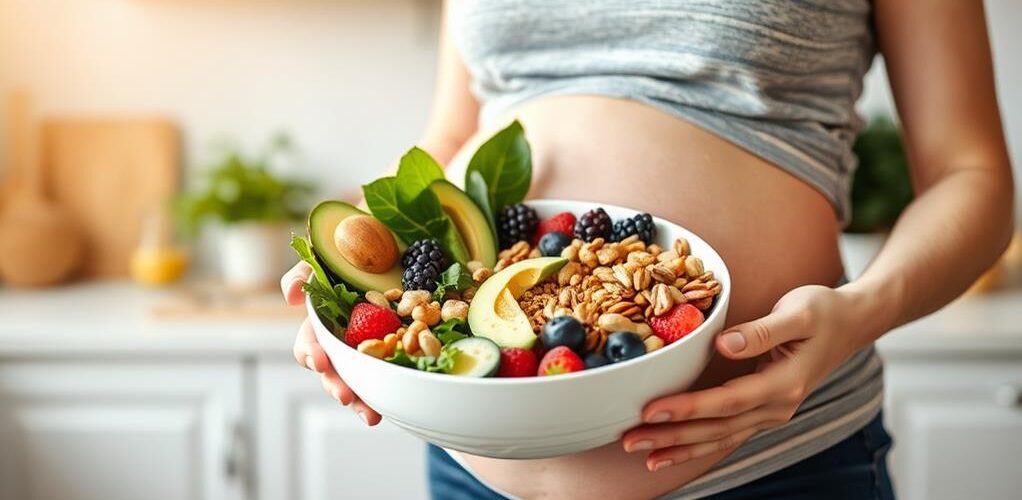
Thinking about going keto while pregnant? It's a tricky topic! The keto diet, known for its high fat and low-carb approach, can lead to serious nutrient deficiencies and even dangerous ketoacidosis for expecting moms. Pregnant women need essential nutrients like folic acid, iron, and calcium for their baby's development, and the strict carb limits of keto can make it hard to get enough. Experts generally recommend a balanced diet full of fruits, veggies, and whole grains. Before making any big changes, it's super important to chat with a healthcare provider. Stick around to discover more about keeping you and your baby healthy!
Key Takeaways
- Pregnant women are generally advised against a keto diet due to potential nutrient deficiencies and health risks.
- Essential nutrients like folic acid, calcium, and iron are crucial for fetal development and may be lacking in a keto diet.
- Consultation with healthcare providers is essential before making any dietary changes during pregnancy.
- A balanced diet rich in fruits, vegetables, whole grains, and healthy fats is recommended for pregnant women.
- Monitoring weight gain and ensuring adequate caloric intake supports both maternal health and fetal development.
What Is the Keto Diet?
The keto diet, often referred to simply as "keto," is a dietary regimen characterized by high fat, moderate protein, and low carbohydrate intake. Imagine a diet where 75% of what you eat is fat, 15-20% is protein, and only 5-10% is carbs. This diet aims to push your body into a state called ketosis, where it burns fat for energy instead of carbs. Pretty wild, right?
The keto diet became popular in the 1920s as a treatment for epilepsy. Fast forward to now, it's used by many for weight loss and managing conditions like Type 2 Diabetes Mellitus.
But here's the kicker: you have to keep your carbs under 50 grams a day. That's like having just one banana!
While some folks rave about short-term weight loss and feeling more energetic, others worry about long-term health effects and missing out on nutrients. This is super important for pregnancy health.
Pregnant women need a ton of nutrients for their growing baby, and the strict carb limits of keto might make it hard to get all those essential vitamins and minerals. So, sticking to keto principles while pregnant can be really tricky.
Effects on the Body
When considering the effects of the keto diet on the body, one must understand its foundational mechanism: ketogenesis. This process shifts the body's energy production from carbohydrates to fat, creating ketones as an alternative fuel source.
During ketosis, the body undergoes significant changes in keto metabolism. Fat becomes the primary energy source, which can increase fat oxidation and lower insulin levels. This metabolic shift affects overall energy levels and can impact nutrient absorption.
However, there's a catch. Excessive ketone production can lead to ketoacidosis, a dangerous situation especially concerning for pregnant women. This condition indicates problems like uncontrolled diabetes and can be quite harmful.
Additionally, the keto diet's carbohydrate restriction can cause deficiencies in essential nutrients, such as B vitamins and fiber. Both are vital for fetal development and maternal health.
Pregnant women face extra challenges on the keto diet. Their bodies demand more calories and glucose to support the growing baby, making it hard to maintain ketosis.
This diet can be tough and potentially harmful during pregnancy, given the need for balanced nutrition. So, while keto may work for some, it's a tricky choice for expectant mothers.
Essential Nutrients for Pregnancy
When you're pregnant, getting the right nutrients is super important.
You need things like folic acid for your baby's brain and spine, calcium for strong bones, and iron to keep your blood healthy.
A balanced diet with lots of fruits, veggies, whole grains, and lean proteins can help you get everything you need for you and your baby.
Key Pregnancy Nutrients
Pregnancy demands a heightened focus on nutrition, as the developing fetus depends on a range of essential nutrients for ideal growth. Making sure that you get the right nutrients at the right times can be tricky, but it's super important. Let's break down some of the key nutrients you'll need and where to find them.
Folic acid is at the top of the list. It's essential for brain and spine development, and you can find it in leafy greens and legumes. Calcium is next, significant for bone health and fetal development. Pregnant women need about 1,000 mg per day, coming from dairy products, fortified foods, and leafy greens.
Iron is just as necessary. It helps prevent anemia and supports increased blood volume. You should aim for 27 mg per day, and you can get it from lean meats, beans, and spinach. Omega-3 fatty acids, especially DHA, are important for brain and eye development. Think fatty fish like salmon, walnuts, and flaxseeds.
Vitamin D is the final piece of the puzzle. It supports calcium absorption and immune function, so get at least 600 IU per day through sunlight, fortified foods, or supplements.
| Nutrient | Daily Requirement |
|---|---|
| Folic Acid | 400-800 mcg |
| Calcium | 1,000 mg |
| Iron | 27 mg |
| Omega-3 (DHA) | 200-300 mg |
| Vitamin D | 600 IU |
With careful nutrient timing and the right supplementation strategies, you can guarantee a healthy pregnancy!
Importance of Balanced Diet
A balanced diet is vital for the health and well-being of both the mother and the developing fetus during pregnancy. It guarantees you get essential nutrients like calcium, iron, folate, and omega-3 fatty acids, which are fundamental for fetal development and your own health.
For instance, folic acid is super important for your baby's brain and spine development. Pregnant women need about 600 micrograms of folic acid daily, which you can get from leafy greens and legumes, foods that are rich in carbohydrates.
You should also increase your caloric intake by 300-500 calories per day, but make certain those extra calories come from nutrient-dense foods like fruits, vegetables, whole grains, and lean proteins. Essential vitamins like A, C, D, and E, as well as minerals like magnesium, should be part of your daily diet to avoid nutritional deficiencies.
Don't forget dietary fiber; it helps with digestion and prevents constipation, which is a common issue during pregnancy.
Regularly check in with your healthcare provider to monitor your nutrient intake and address any deficiencies. This way, you and your baby can stay healthy and thrive through the pregnancy.
Safety Concerns
The ketogenic diet presents significant safety concerns for pregnant women due to its restrictive nature, which can lead to nutrient deficiencies in essential vitamins and minerals crucial for fetal development, such as folate and magnesium.
One of the biggest keto myths is that it's safe for everyone, but pregnancy risks are particularly high. Research shows that low carbohydrate intake can negatively impact fetal growth since glucose from carbs is essential for development.
Imagine trying to build a house with half the materials; that's what happens when you deprive a growing baby of necessary nutrients.
Pregnant women on a keto diet also face increased risks of complications like ketoacidosis, a serious condition that can be a health emergency.
Plus, there aren't enough long-term studies to fully understand the effects of keto during pregnancy. Some animal studies even show potential adverse effects on offspring development.
Health professionals usually advise against the keto diet during pregnancy, stressing the need for a balanced diet rich in fruits, vegetables, whole grains, and lean proteins.
Expert Recommendations

Experts generally advise against following a ketogenic diet during pregnancy because it might not provide all the nutrients you and your baby need.
It's super important to talk to your doctor before making any big changes to your diet, especially one as restrictive as keto.
Most health professionals suggest eating a balanced diet that includes lots of fruits, vegetables, whole grains, and healthy fats to keep both you and your baby healthy.
Consult Healthcare Professionals
Considering the unique nutritional demands of pregnancy, consulting healthcare professionals is vital for personalized dietary advice.
Pregnancy is a significant period that requires careful attention to diet, and healthcare providers can offer personalized guidance tailored to individual health needs and potential risks. Through dietary consultations, medical experts advise against restrictive diets like keto during pregnancy. They emphasize the importance of a balanced intake of macronutrients to support both maternal and fetal health.
Regular check-ups with healthcare providers are important to monitor weight gain and fetal development. This guarantees that dietary choices are benefiting both the mother and the baby.
Prenatal vitamins are often recommended alongside a nutrient-rich diet to address any deficiencies that might arise from low-carb eating patterns. It's like having a superhero team looking out for you and your baby!
Engaging in open discussions with healthcare providers about dietary concerns can help pregnant women navigate the confusing and sometimes conflicting information about ketogenic diets.
Balanced Nutrient Intake
Achieving balanced nutrient intake during pregnancy is imperative for the health of both the mother and the developing fetus. Essential nutrients like folate, iron, calcium, and omega-3 fatty acids play a significant role in fetal development. To guarantee a balanced intake, pregnant women should focus on dietary variety and nutrient timing.
Consuming a diverse array of nutrient-dense foods such as fruits, vegetables, whole grains, lean proteins, and healthy fats is essential. Pregnant women are recommended to increase their caloric intake by 300-500 calories per day, particularly in the second and third trimesters, to meet the growing needs of the fetus.
Here are four key points to take into account for balanced nutrient intake:
- Folate: Necessary for preventing neural tube defects. Found in leafy greens, legumes, and fortified cereals.
- Iron: Supports increased blood volume and oxygen transport. Sources include lean meats, beans, and spinach.
- Calcium: Important for fetal bone development. Dairy products, fortified plant milks, and leafy greens are good sources.
- Omega-3 Fatty Acids: Critical for brain development. Available in fatty fish, flaxseeds, and walnuts.
Monitoring carbohydrate intake is also important for managing blood sugar levels, especially for those with gestational diabetes.
Complementing prenatal vitamins with a balanced diet guarantees that nutrient gaps are effectively addressed.
How to Modify Keto
Modifying the keto diet for pregnant women involves prioritizing nutrient-dense foods to confirm both maternal and fetal health. To make the necessary keto modifications, focus on including leafy greens, avocados, nuts, and seeds. These foods guarantee you get essential vitamins and minerals while keeping carbs low. Think of them as the superheroes of your diet, swooping in to save the day with nutrient balance.
Next, let's talk fats. Limit saturated fats and go for healthy fats from fish, olive oil, and, yes, more avocados! Healthy fats are like the friendly neighbors who always lend a hand, supporting your heart and your baby's development.
Don't forget about complex carbs. Foods like sweet potatoes and quinoa can be included in moderation. They help you get the fiber and nutrients you need without breaking keto rules. It's like sneaking a healthy treat into your diet, winning both taste and nutrition.
Choline-rich foods such as eggs and lean meats are also essential. They play a key role in your baby's brain and metabolism.
And always, always consult with a healthcare provider or nutritionist to tailor your keto journey, confirming you and your baby thrive.
Frequently Asked Questions
How to Do Keto While Pregnant?
Keto meal planning during pregnancy should emphasize nutrient balance by incorporating lean proteins, healthy fats, and diverse vegetables while monitoring key nutrients. Consulting healthcare providers guarantees nutritional needs are met, supporting both maternal and fetal health.
Can I Do Keto While Trying to Get Pregnant?
Considering fertility nutrition, low carb diets like keto may not be advisable when trying to conceive. These diets can lead to nutrient deficiencies, potentially impacting hormone regulation and reproductive health. Consult a healthcare provider for personalized advice.
Does Ketosis Affect Pregnancy?
Ketosis effects on pregnancy can impact maternal health by potentially depriving the fetus of essential glucose, leading to adverse developmental outcomes. Nutritional deficiencies associated with ketosis may further compromise fetal growth and maternal well-being.
Can You Do Lazy Keto While Pregnant?
While lazy keto may offer benefits such as reduced carbohydrate intake, the risks during pregnancy, including potential nutrient deficiencies and adverse effects on fetal development, outweigh the advantages. Consulting healthcare providers is essential before considering this diet.
Conclusion
In summary, while the keto diet offers several potential benefits, its safety for pregnant women remains uncertain due to the need for essential nutrients and potential health risks. Consulting healthcare professionals is vital before making dietary changes during pregnancy. Modifying the keto diet to include a well-balanced intake of carbohydrates, proteins, and fats, along with necessary vitamins and minerals, can help safeguard the health and well-being of both the mother and the developing baby.
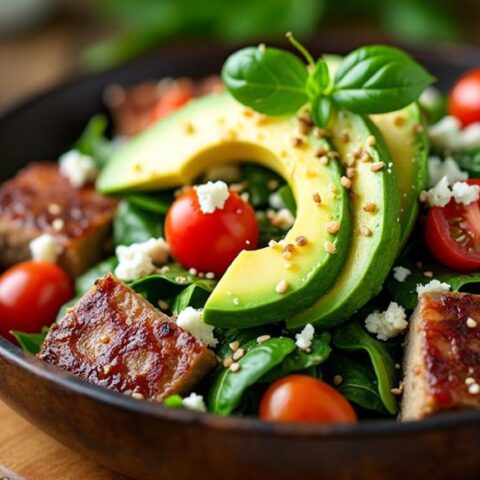
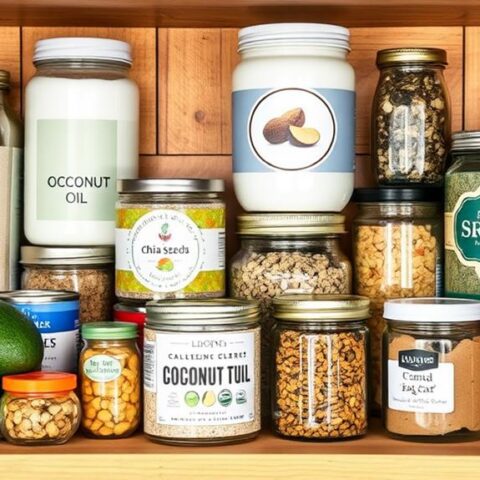
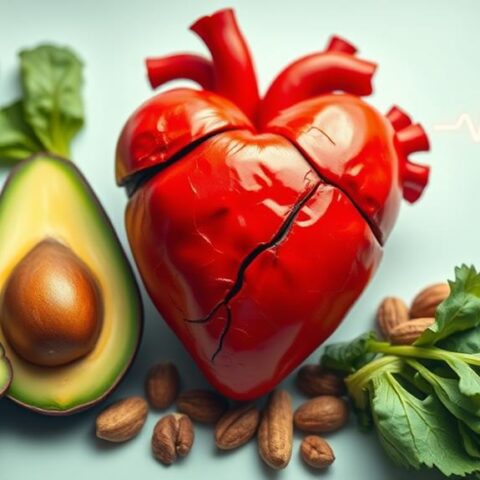
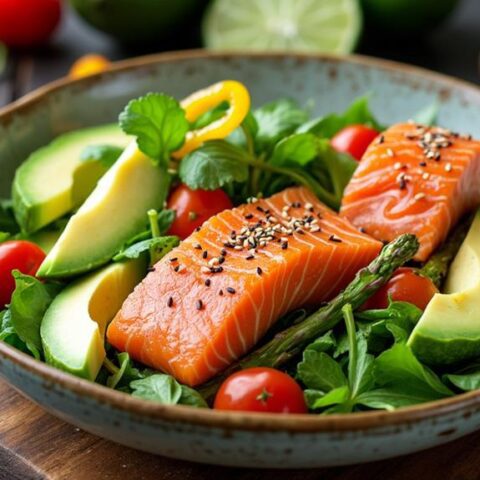






No Comments